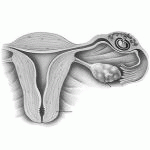Gynaecology
|
3 may 2015 01:37:04 |
| Sociodemographic and clinical features of postpartum depression among Turkish women: a prospective study (BMC Pregnancy and Childbirth) |
|
Tweet Background:
Postpartum depression (PPD) is moderate to severe depression in a woman after she has given birth. Findings from several well-designed studies reflect great variability in rates, from 10 to 22%, and also in risk factors for PPD. This variability may reflect geographical location. The incidence and risk factors for PPD among Turkish women are not well documented. It is, however, important to understand the risk factors to develop preventive intervention strategies. This study aims to examine the prevalence of PPD and associated risk factors among a sample of women receiving services at a tertiary obstetrics hospital in Ankara, Turkey.
Methods:
A sample of 671 women, between 36 and 40 gestational weeks, were enrolled and screened for depressive symptomatology using the Hospital Depression Inventory. Sociodemographic and clinical data were also collected. At a subsequent postpartum evaluation, 6–8 weeks post-delivery, 540 of the 671 were screened using the Edinburgh Postnatal Depression Scale (EPDS) for PPD.
Results:
Eighty-three (15.4%) of the 540 women had scores above the cutoff point (>13) on the EPDS. Statistically significant correlations were found between antenatal, prenatal and postpartum depression scores (r = 0.24). Women reporting suicidal thoughts during pregnancy (OR: 6.99), history of past PPD (OR: 6.64), physical violence during pregnancy (OR: 6.20) or during the postpartum period (OR: 5.87), previous psychiatric history (OR: 4.16), depressive symptoms during pregnancy (OR: 1.70), subjectively lower level of satisfaction with the pregnancy (OR:0. 69), a history of premenstrual syndrome (PMS) (OR: 2.05), and unplanned pregnancy (OR: 1.69) had higher odds for developing PPD.
Conclusion:
One in six mothers screened as positive for PPD. Women who had previously been diagnosed with PPD, reported suicidal thoughts during pregnancy, or had been exposed to physical violence were at especially high risk for postpartum depression. To prevent and treat postpartum depression, special attention should be paid to women reporting these characteristics. |
| 88 viewsCategory: Gynaecology |
 Psychological antecedents of excess gestational weight gain: a systematic review (BMC Pregnancy and Childbirth) Psychological antecedents of excess gestational weight gain: a systematic review (BMC Pregnancy and Childbirth)Can we identify women who initiate and then prematurely cease breastfeeding? An Australian multicentre cohort study (International Breastfeeding Journal) 
|
| blog comments powered by Disqus |
MyJournals.org
The latest issues of all your favorite science journals on one page
The latest issues of all your favorite science journals on one page



